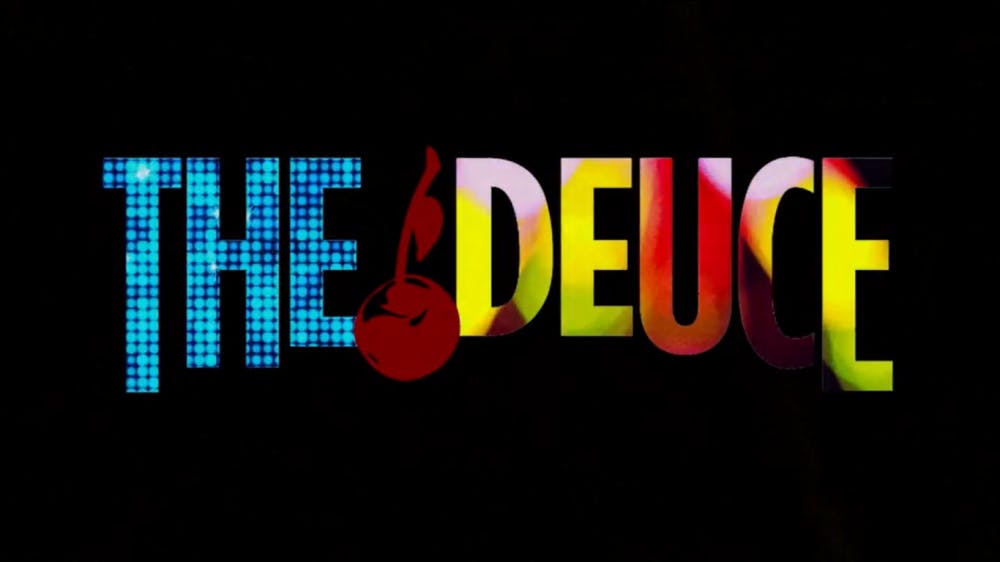Two gaudily dressed men sit next to each other on a bench in the New York Port Authority bus terminal. They watch every passerby, their eyes probing every flank and flash of skin that crosses their path. “What’re you fucking around for, man? Get a couple of white bitches, and a fine black bitch and work ‘em. No one man can handle but two or three bitches anyway, and if you got ‘em, you better speak their language.” This pimp, C.C. (Gary Carr), finds what he’s looking for. His focus narrows and he approaches Lori (Emily Meade)—the country girl fresh off the bus—and is able to influence her before she even sets her feet on the New York City pavement.
Thus we nosedive into the world of pimping—the gritty, thankless, and carnal trade that took root in New York City in the early ‘70s. This is just the beginning. HBO’s The Deuce tells the story of the legalization and subsequent popularization of the porn industry, by zeroing on the players that made it all possible. This world that David Simon erects (Ed. note: pun intended) in The Deuce spares no detail in bringing to life the reality of the past. In an environment that fosters an industry dependent on the sale of flesh, everything is appealing to the eye. If one isn’t careful enough, the flashy streets of 42nd between Seventh and Eighth Avenues might even seem romantic. But beware: nothing is as it seems.
Simon crafts a colorful and complex range of characters in a brutal, unsparing depiction of American struggle. Maggie Gyllenhaal is unrecognizable as Candy, the tough–as–nails prostitute who works the streets unprotected by any man. Instead, she hides behind a blonde, curly wig to shield herself from the draconic nature of her profession. To say that she looks tired is not sufficient—her exhaustion is the very essence of tragedy. The pimps, too, take care not to betray any sort of underlying humanity. Gbenga Akinnagbe plays Larry Brown, a pimp who is dangerously compassionate, and who is subsequently one of the greatest sources of alarm. He resorts to violent behaviors that are erratic, volatile, and acerbic in order to be one of the most formidable players in the game, and in order to hide any sort of tenderness. Each character is a bigger sinner than the last, and yet, one cannot help but sympathize with a person who is just trying to make do with what they can.
This first season is preoccupied with the humanistic conditions that bore the demand for the porn industry, and its message is accessible to anyone. The dialogue is not bogged down by lofty police jargon or niche street vernacular. You can witness every aspect of the pandemonium without feeling as though the narrator is trying to bamboozle viewer. And just like its characters, the series is slow to reveal its hand. There are a number of story lines that just barely touch one another by the end of the season, although it's very clear that much more needs to happen. We have been presented with both the match and the flint, and now we must wait to see what happens once that match is struck. Once ignited, this series will present one of the most approachable stories of humanity that television has ever produced.

